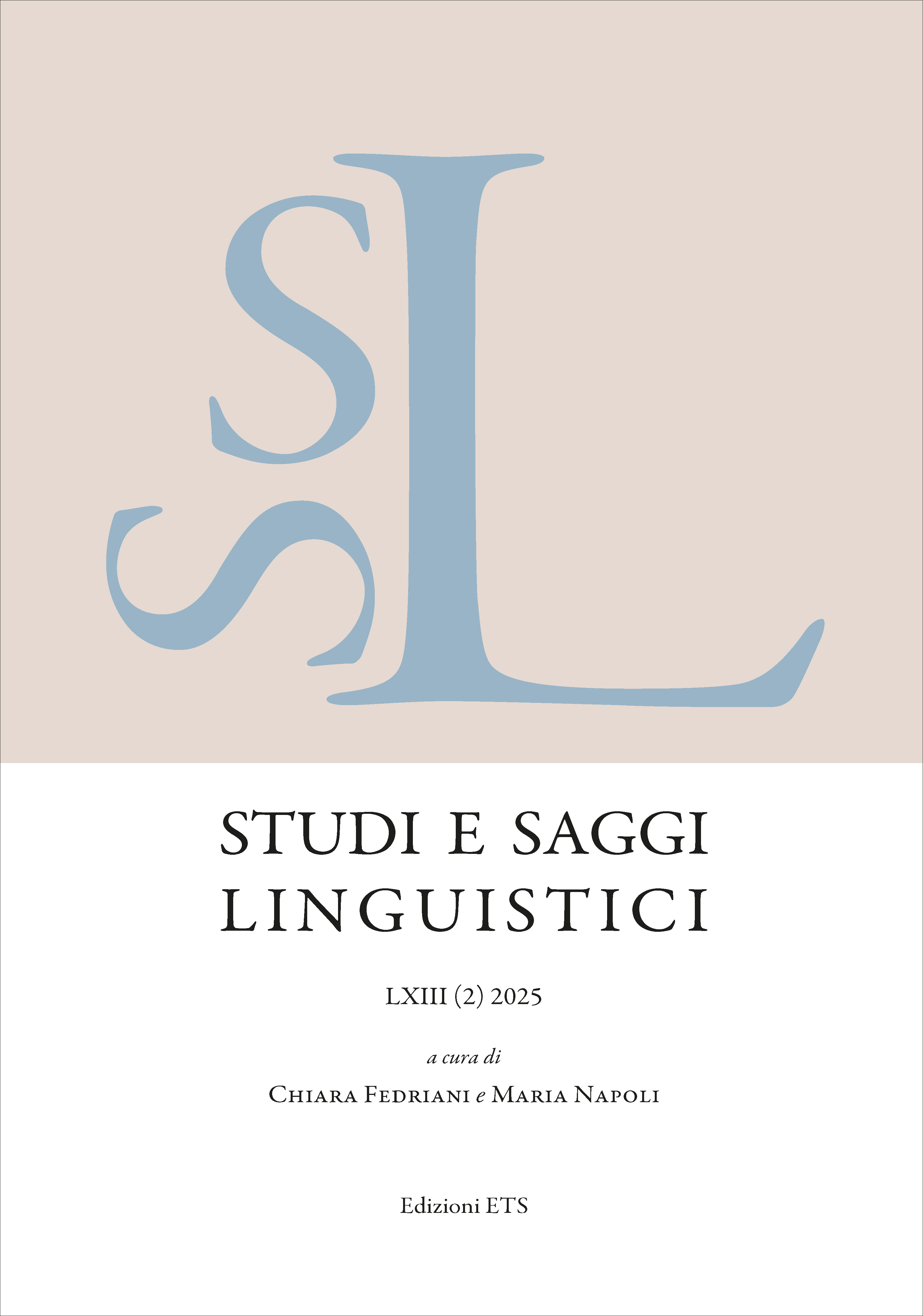… as the usage wants you do: Why study etiquette books?
Abstract
The main goal of historical politeness research is “the historical understanding of historical (im)politeness.” A key challenge in this field—still relatively underexplored in Italy—is determining what past speakers considered polite. Among the sources available, texts containing metapragmatic comments on communicative forms and behaviors are particularly valuable, as they provide insight into historical speakers’ own interpretations of politeness. Etiquette books, entirely composed of reflective discourse on (im)politeness, are a crucial resource for reconstructing communicative patterns of specific periods and places. My research, based on the analysis of etiquette books aims to: (i) identify conversational principles outlined in these texts; (ii) trace continuity and change from Della Casa’s Galateo (1558) to contemporary manuals; (iii) compare these findings with first-generation politeness theories. The study reveals both notable diachronic continuity in conversational norms and unexpected parallels between prescriptive etiquette norms and descriptive politeness theories, raising the broader question of whether a clear-cut distinction between prescription and description is truly feasible in politeness research.
